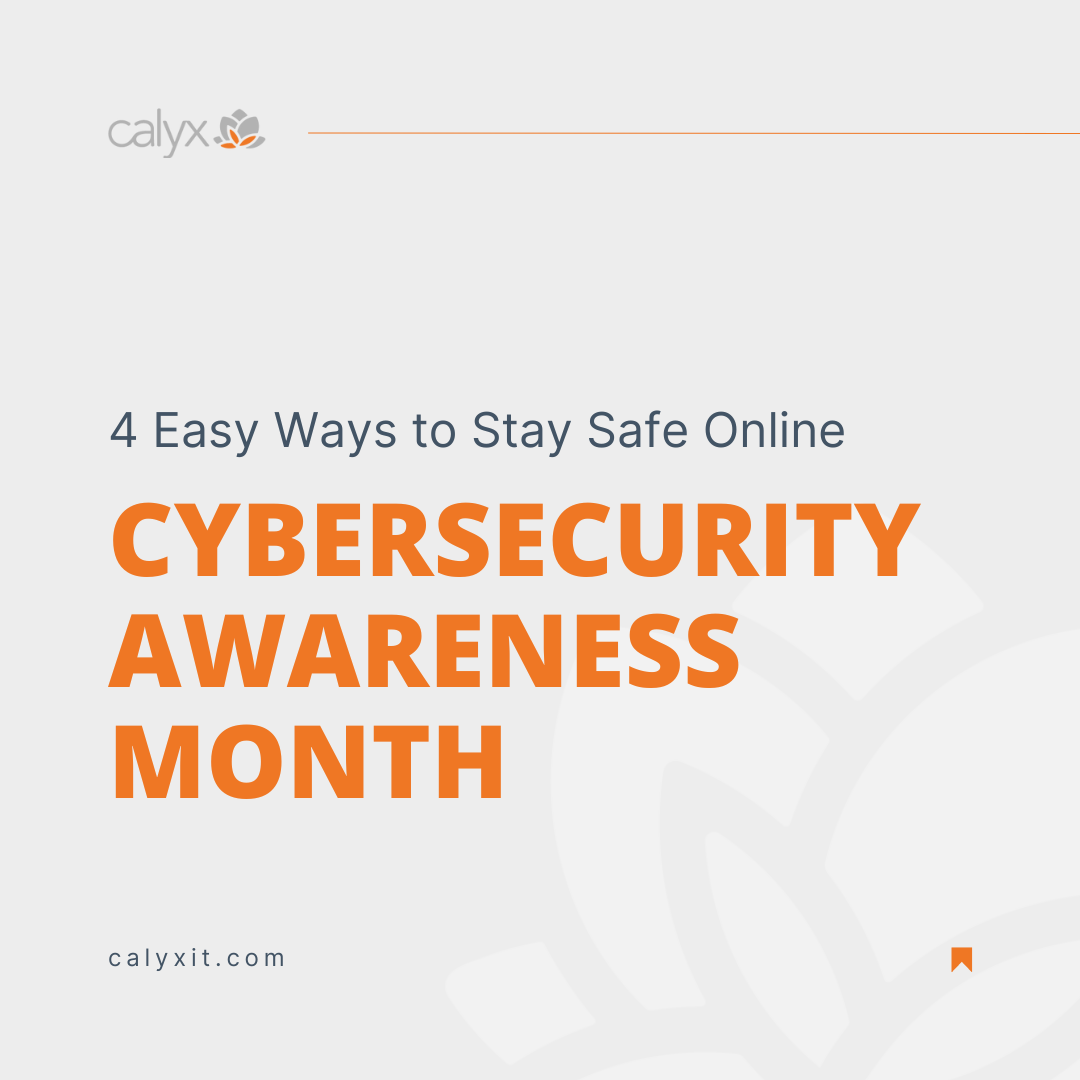
October is National Cybersecurity Awareness Month, a great time to focus on strengthening your online security. Cyber threats are constantly evolving, but the good news is that protecting yourself doesn’t have to be complicated. Here are four simple steps you can take to stay safe online:
1. Turn On Multi-Factor Authentication (MFA)
Multi-Factor Authentication (MFA) is one of the easiest and most effective ways to add an extra layer of security to your accounts. Instead of just relying on a password, MFA requires a second form of verification, like a code sent to your phone or a fingerprint scan. This means even if a hacker gets ahold of your password, they can’t access your account without the second factor.
How to do it:
- Check your accounts (email, banking, social media) and enable MFA in the security settings.
- Use an authenticator app like Google Authenticator or Duo for extra security.
Why it matters: MFA makes it significantly harder for cybercriminals to compromise your accounts, reducing the risk of breaches.
2. Use Strong Passwords & a Password Manager
Creating strong, unique passwords for each account is essential for online safety, but let’s be honest—it’s nearly impossible to remember all of them. That’s where password managers come in. A password manager securely stores your passwords and can even generate complex, random passwords for each account, making it easier to maintain security without the headache of remembering them all.
How to do it:
- Use a password manager like Dashlane or these to store and manage your passwords.
- Ensure each password is at least 12-18 characters long, including upper and lowercase letters, numbers, and symbols.
Why it matters: Strong, unique passwords prevent hackers from easily guessing or cracking your credentials, and a password manager keeps everything organized and secure.
3. Update Software Regularly
We’ve all been guilty of hitting “Remind me later” on those software update notifications, but staying up to date is critical. Software updates often contain important security patches that protect your devices from vulnerabilities that hackers could exploit.
How to do it:
- Turn on automatic updates for your operating systems, browsers, and apps.
- Regularly check for updates on your devices and apply them as soon as they’re available.
Why it matters: Keeping your software up to date ensures you’re protected against known security vulnerabilities and keeps hackers from exploiting outdated systems.
4. Recognize and Report Phishing
Phishing is one of the most common cyber threats today, where attackers impersonate legitimate organizations or individuals to steal your personal information. Knowing how to recognize phishing emails, texts, and calls is crucial for staying safe online.
How to do it:
- Be cautious of unsolicited emails asking for personal information, especially those with urgent language or suspicious links.
- Verify the sender’s email address and hover over links before clicking to see where they lead.
- Report phishing attempts to your email provider or IT department, and block the sender.
Why it matters: Recognizing phishing attempts helps prevent data breaches and identity theft by stopping attackers from tricking you into giving them access to sensitive information.
Take Control of Your Cybersecurity
These four simple steps—enabling MFA, using strong passwords with a manager, updating software, and recognizing phishing—are easy but powerful ways to protect yourself online. Cybersecurity doesn’t have to be overwhelming. By staying proactive and following these tips, you can significantly reduce your risk of falling victim to cyberattacks.
This National Cybersecurity Awareness Month, take the time to review your digital habits and strengthen your defenses. Stay safe out there!
